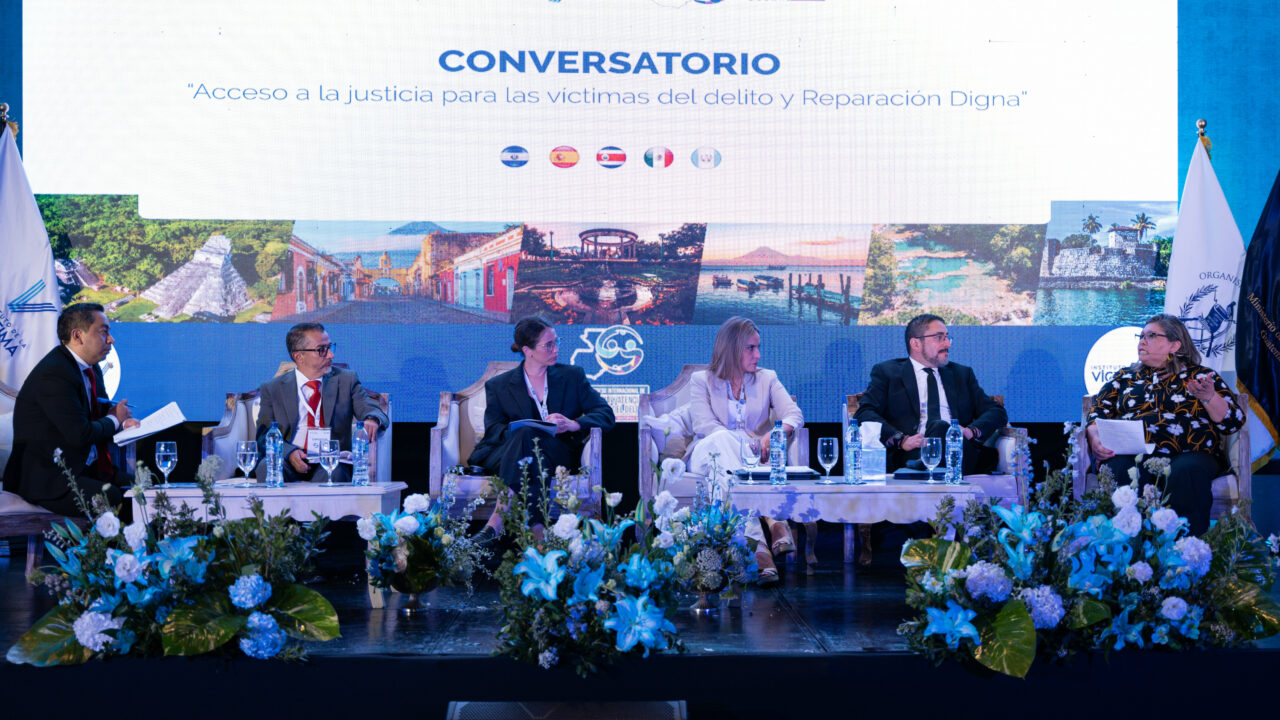IJM supports the Launch of the Crime Victims Reparation Policy in Guatemala
Violence Against Women and Children
Guatemala has taken a significant step towards providing effective solutions for the complete restoration of victims and survivors of violence. At the International Summit of Attention and Assistance to Victims of Violence, Guatemala launched the first "Crime Victims Reparation Policy".
The event, organized by the Victims’ Institute, gathered justice system representatives specialized in victims’ assistance, victims and survivors, and experts from Guatemala, El Salvador, Mexico, Costa Rica and Spain. Survivors shared their experiences in seeking justice, and other participants shared good practices and recommendations to improve the approaches taken by justice institutions.
IJM Guatemala partnered with the Victims Institute to formulate the "Crime Victims Reparation Policy", recognizing the importance of comprehensive restoration for victims and survivors. The collaboration included the policy's design, discussion, and publishing, as well as financial and technical support for the Guatemalan institutions involved in the process.
Juan Miguel Rivera, Regional Vice President IJM, Northern Triangle Program in Latin America, explained: “We have to recognize that criminal prosecution alone does not always satisfy all the needs of victims and survivors. Looking at this from a people-centered, system-minded, comprehensive perspective will increase victims' satisfaction and empowerment.”
The "Crime Victims Reparation Policy" is a significant milestone for the protection of Guatemalan victims. It establishes a coordination route among the justice institutions that accompany or interact with victims and mandates them to secure measures to materialize proper reparation.
It also establishes what effective reparation involves according to international and local Human Rights legislations and how crucial each person's circumstances are when determining the reparation needed to achieve complete restoration.
IJM celebrates the systemic, long-term transformation that is coming about in the justice and protection system in Guatemala.
“Victims’ and survivors’ journey for justice does not end with a sentence or conviction of the perpetrator -although important for victims’ safety-. But justice to be such, must ease the way to restoration, must provide what is required for victims to be empowered and owe again their life project. This is possible only when justice systems have the capacity and mechanisms to secure the right to an effective remedy in each victim and survivor's life, as Guatemala will now do with this policy.” Pablo Berthet, Justice Solutions Lawyer, IJM Guatemala.